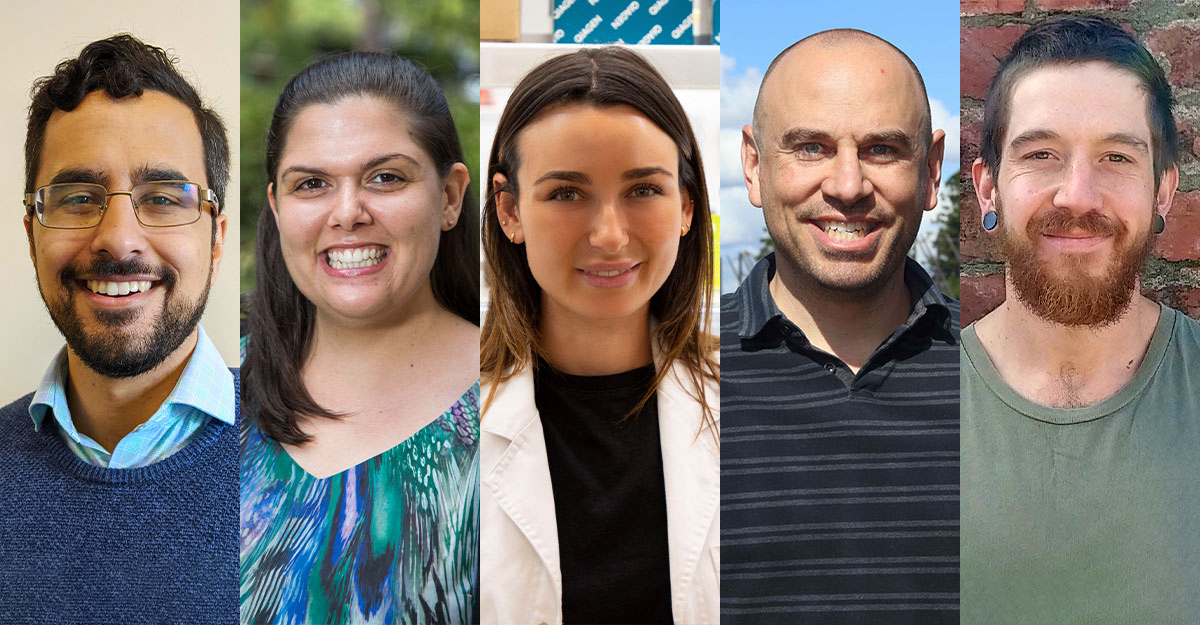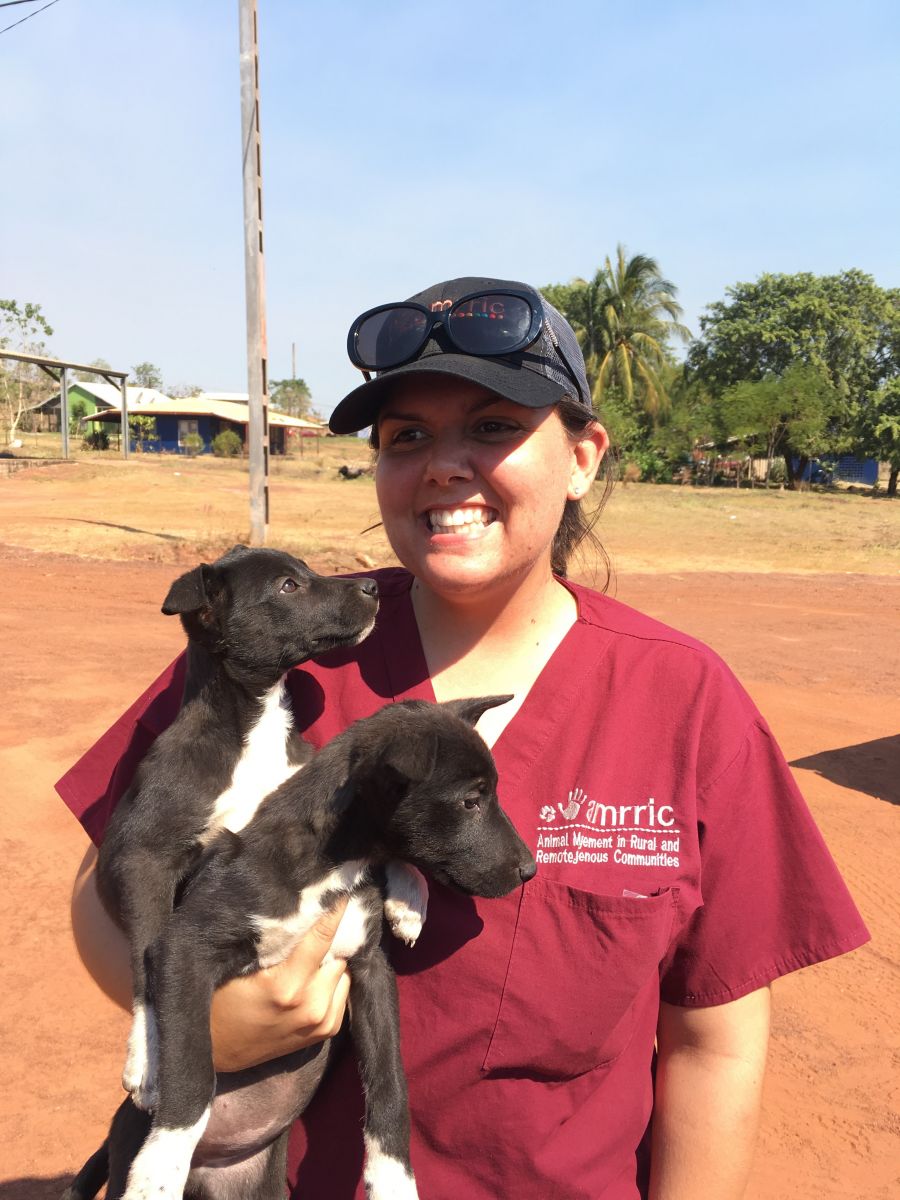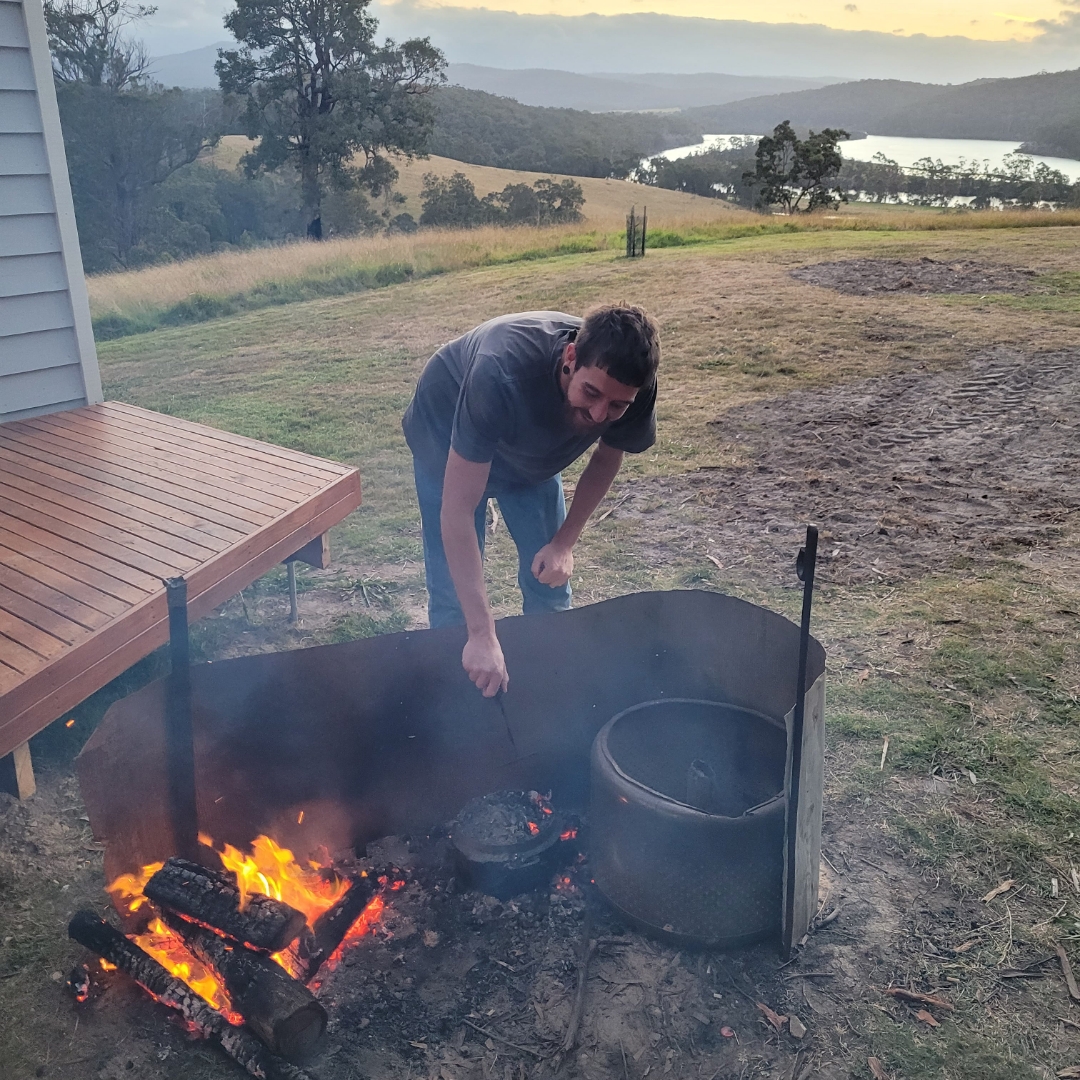Five Aboriginal and Torres Strait Islander scientists awarded
- 4 mins read


From left: Dr Jordan Pitt, Tamara Riley, Vanessa Sewell, Dr Keane Wheeler and Luke Williams.
Five promising researchers from universities around Australia are the 2022 recipients of the Australian Academy of Science Aboriginal and Torres Strait Islander Scientist Award.
The award recognises research in the physical and biological sciences, allowing interdisciplinary and sociocultural research that could straddle the social sciences and humanities, by outstanding Aboriginal and Torres Strait Islander PhD students and early- and mid-career scientists.
Dr Jordan Pitt, University of Adelaide
Dr Pitt’s project looks at the interaction between sea ice and ocean waves, in order to improve future climate models. He said current models of sea ice are not accurate enough to produce convincing projections of Australia’s climate.
“I am deeply honoured to receive this award and very excited to advance my research,” said Dr Pitt.
“I hope to continue the work of previous award winners and Indigenous scientists to inspire others to STEM excellence and to make the STEM pathways for Aboriginal and Torres Strait Islanders well-trodden.”
Tamara Riley, ANU

Tamara Riley in Wadeye, NT, working with Animal Management in Rural and Remote Indigenous Communities. Photo: supplied.
Ms Riley's project, titled ‘Walu-win mayiny balugan mawang’ (Well people and animals all together) seeks to understand how the human–animal–environment relationship impacts on Aboriginal communities’ health, and then to develop ‘One Health’ models for use in Aboriginal communities.
A One Health approach advocates that research, in conjunction with clinical practice and policy, is essential for addressing existing and emerging health problems to improve health outcomes.
“Multiple outbreaks of zoonotic origin, including the current global pandemic, have shown the importance of understanding the human–animal–environmental health relationships,” said Ms Riley in her application.
Vanessa Sewell, University of New England
Ms Sewell’s project addresses the problem of vaccinating against drench-resistant sheep parasites, such as brown stomach worms and black scour worms.
Currently, these vaccines do not exist, but Ms Sewell’s project looks to enable the technology required to mass-produce synthetic antigens required for them.
“This will provide a much-needed biotechnological solution to a burdensome global agricultural issue,” said Ms Sewell in her application.
“I am honoured to represent the Worimi tribe in science.”
Dr Keane Wheeler, University of Queensland
Dr Wheeler's work looks to redress inequalities in Aboriginal and Torres Strait Islander children’s health and development.
His project involves a co-design process with the Yarrabah Aboriginal and Torres Strait Islander community to create a ‘Move2Smile with Culture’ program, which will combine fundamental movement skills and socio-emotional learning through embedding Aboriginal and Torres Strait Islander ways of knowing, being and doing.
“Move2Smile programs have been shown to build learning capabilities and improve child development outcomes, to better prepare children for a meaningful life,” said Dr Wheeler in his award application.
Luke Williams, RMIT University

Luke Williams on an Aboriginal research partner's farm on Bidawal Country near the Wallagaraugh River. Photo: supplied.
Mr Williams’ research involves evaluating the dietary safety of Australian native foods.
He aims to develop evidence-based risk assessments of traditional food products in a manner that considers the stories, knowledge and interests of Aboriginal communities, whilst also meeting the safety data requirements set out by regulatory bodies around the world.
“A range of traditional foods are being developed for commercial markets, [but] safety data is lacking for many of these traditional foods and the history that surrounds their safe use has rarely been recorded,” said Mr Williams.
“I am thankful to the Australian Academy of Science for providing funding that will help me go out into Community and spend time on Country visiting the Aboriginal research partners I am working for.
“This will better allow me to include Aboriginal voices and perspectives in the outcomes of my research project.”
Towards reconciliation
The Aboriginal and Torres Strait Islander Scientist Award aims to support recipients’ research and in some cases the expansion and growth of their research networks and international knowledge exchange through visits to relevant international centres of research.
Awards are up to $20,000, with additional support provided to attend the Academy's annual Science at the Shine Dome event.
The 2023 Aboriginal and Torres Strait Islander Scientist Award will be opening in early March 2022.
The Academy is committed to advancing reconciliation, creating opportunities to work respectfully with Aboriginal and Torres Strait Islander peoples, supporting their contribution to scientific activities, and increasing understandings of Indigenous knowledge.
Under our Reconciliation Action Plan, we are taking a range of actions, including:
- award an annual research award for Aboriginal and Torres Strait Islander scientists
- encourage our Council members and staff to undertake cultural awareness training as provided by the Australian Institute for Aboriginal and Torres Strait Islander Studies (AIATSIS).
Further activities that align with the implementation of our Reconciliation Action Plan are under development.





